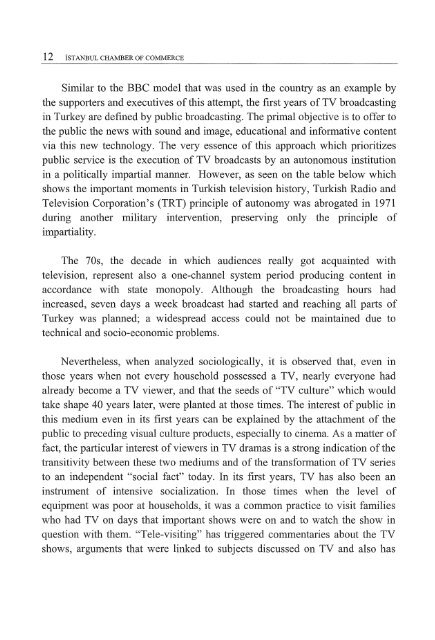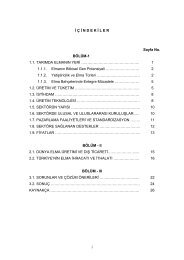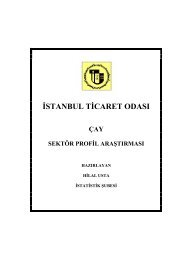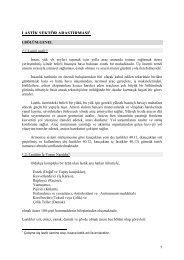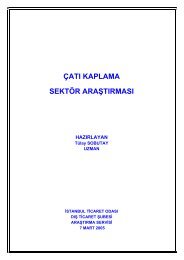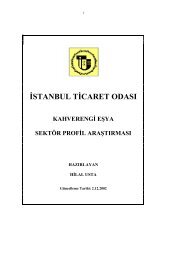Ql - ITO
Ql - ITO
Ql - ITO
Create successful ePaper yourself
Turn your PDF publications into a flip-book with our unique Google optimized e-Paper software.
12 İSTANBUL CHAMBER OF COMMERCE<br />
Similar to the BBC model that was used in the country as an example by<br />
the supporters and executives of this attempt, the first years of TV broadcasting<br />
in Turkey are defined by public broadcasting. The primal objective is to offer to<br />
the public the news with sound and image, educational and inforınative content<br />
via this new technology. The very essence of this approach which prioritizes<br />
public service is the execution of TV broadcasts by an autonomous institution<br />
in a politically impartial manner. However, as seen on the table below which<br />
show s the important mo men ts in Turkish television history, Turkish Radio and<br />
Television Corporation' s (TRT) principle of autonomy was abrogated in 1971<br />
during another military intervention, preserving only the principle of<br />
impartiality.<br />
The 70s, the decade in which audiences really got acquainted with<br />
television, represent also a one-channel system period producing content in<br />
accordance with state monopoly. Although the broadcasting hours had<br />
increased, seven days a week broadcast had started and reaching all parts of<br />
Turkey was planned; a widespread access could not be maintained due to<br />
technical and socio-economic problems.<br />
Nevertheless, when analyzed sociologically, it is observed that, even ın<br />
those years when not every household passessed a TV, nearly everyone had<br />
already become aTV viewer, and that the seeds of "TV culture" which would<br />
take shape 40 years later, were planted at those times. The interest of public in<br />
this medium even in its first years can be explained by the attachment of the<br />
public to preceding visual culture products, especially to cinema. Asa matter of<br />
fact, the particular intere st of viewers in TV dramas is a strong indication of the<br />
transitivity between these two mediums and of the transformatian of TV series<br />
to an independent "social fact" today. In its first years, TV has also been an<br />
instmment of intensive socialization. In those times when the level of<br />
equipment was poor at households, it was a common practice to visit families<br />
who had TV on days that important shows were on and to watch the show<br />
question with them. "Tele-visiting" has triggered coınmentaries about the TV<br />
shows, arguments that were linked to subjects discussed on TV and also has


